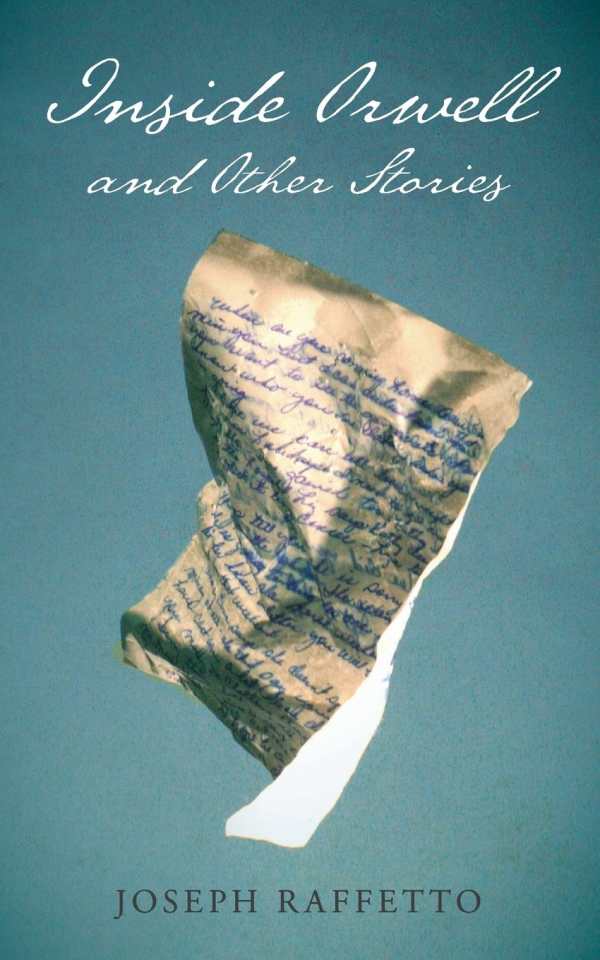
Inside Orwell and Other Stories
Raffetto’s extensive knowledge of his subject elevates his writing in this unique collection that blends storytelling and the essay form.
Joseph Raffetto uses the lives and works of writers F. Scott Fitzgerald and George Orwell to discuss the political and cultural problems of the United States, namely racism, materialism, and the power of the media. Though three of the four “stories” in Inside Orwell and Other Stories read more like essays than fiction, Raffetto’s writing engages and brings a unique twist to storytelling.
The first tale, “Three A.M.,” traces the tumultuous relationship of Zelda and Scott Fitzgerald. As the long list of references in the bibliography of the book attests, Raffetto researched the couple’s life together, and his knowledge and fascination with their relationship is clear, though the story does not add much new insight into Scott and Zelda’s lives that cannot be found in other biographies. It is difficult to label “Three A.M.” as fiction, but Raffetto’s approach to telling their story through fictionalized dialogue is compelling and makes for entertaining reading. The characters’ speech and behavior are in alignment with Fitzgerald’s writing style.
The title story is similar to “Three A.M.” in that Raffetto takes a fictionalized approach to documenting a writer’s life. In “Inside Orwell,” however, he is more successful in revealing new information and tying it into Western culture and politics. Both stories put the authors’ work into the context of their lives and time, but the tale about Orwell also exposes how the writer’s political affiliations impacted his personal mission in his writing and how it relates to the pervasiveness of today’s conflict-driven political climate.
The most successful story—this one clearly fiction—is “The Selection of ‘92,” which takes place during the 1992 presidential election. Two copier salesmen, one a Democrat and one a Republican, compete, argue, and grow as people throughout the story. Rather than taking sides to convey a message, Raffetto portrays the two characters as men with both faults and strengths to show how the nation’s political atmosphere shapes citizens’ lives, from their careers to their families to their romantic relationships. The outcome of the election is no surprise, but the salesmen’s intertwined stories offer insight into how politics influences one’s loyalty, values, ambition, and honesty.
Raffetto concludes with a very short essay about the Trayvon Martin case, bringing in George Orwell’s struggles during the Spanish Civil War to discuss how authority figures (media, government, etc.) have the power to control social justice. Like “Three A.M.,” the piece does not add much of a new perspective on the issue; by going more in depth into how Orwell’s philosophy applies to the case, “The Georges” could be more powerful and could draw the three other works together to give the book more unity.
While readers should not begin Inside Orwell and Other Stories expecting fiction, the three longer pieces are entertaining and each acts as an exposé on how politics and culture impact individual behavior—most often negatively. Fans of Orwell and Fitzgerald should find worthwhile insight in this collection.
Reviewed by
Aimee Jodoin
Disclosure: This article is not an endorsement, but a review. The publisher of this book provided free copies of the book and paid a small fee to have their book reviewed by a professional reviewer. Foreword Reviews and Clarion Reviews make no guarantee that the publisher will receive a positive review. Foreword Magazine, Inc. is disclosing this in accordance with the Federal Trade Commission’s 16 CFR, Part 255.
